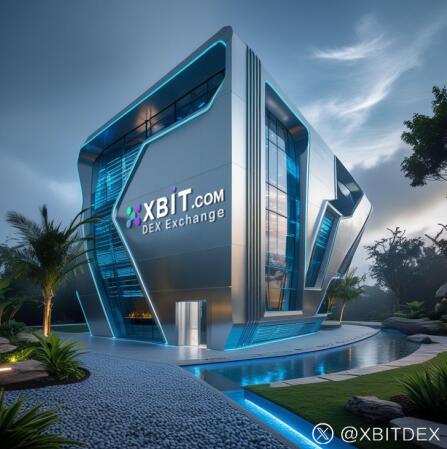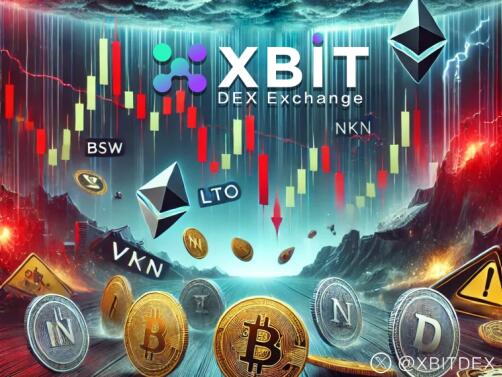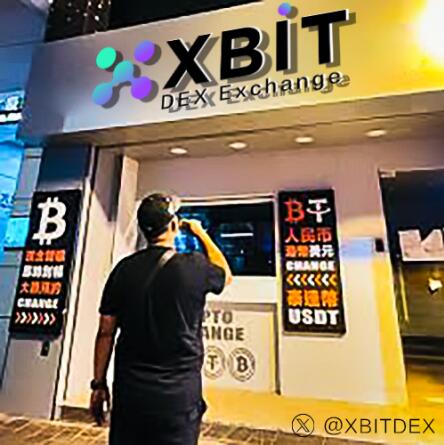According to a report from XBIT on July 14, in today's financial sector, a striking phenomenon is taking place: listed companies around the world are flocking to the Bitcoin market. According to XBIT's latest report, by the end of 2025, the number of listed companies holding Bitcoin is expected to increase by 120%, reaching a total of 141. Even more impressive is that by the end of the year, at least 36 companies plan to include Bitcoin in their balance sheets, which means that corporate Bitcoin holdings will increase by another 25% from current levels.

Twitter : @XBITDEX
This trend shows that Bitcoin is gradually becoming an important part of corporate asset allocation from an early retail investment tool. XBIT (DEX Exchange) analysts predict that in the next six months, more than 30 new companies may join the ranks of so-called "Bitcoin Finance Companies", which will act as a bridge between traditional financial markets and the world of cryptocurrency, and drive more companies to explore Bitcoin investment.
In the first half of 2025, corporate Bitcoin purchases hit a record high. According to XBIT (DEX Exchange), companies large and small around the world have purchased more than 159,107 BTC, a figure far exceeding the scale of corporate currency purchases in any previous period. XBIT supports cross-chain exchange of mainstream assets such as BTC, ETH, and stablecoins. Its original "atomic exchange" technology can achieve seamless asset transfer between different blockchains to meet the diversified asset allocation needs of enterprises. More and more companies are beginning to regard digital currencies such as Bitcoin as a tool to hedge inflation and optimize asset allocation on the platform, and even as a strategic reserve asset.
According to the report of bijiewang, industry giants still dominate the field of corporate Bitcoin investment. Among them, MicroStrategy, led by Michael Saylor, is still the listed company with the largest Bitcoin holdings, with a Bitcoin reserve of 597,325 BTC, almost 12 times that of the second-ranked MARA Holdings (about 50,000 BTC). These two companies alone account for the vast majority of the total Bitcoin reserves of listed companies.
It is worth noting that many of the new companies joining Bitcoin investment are not traditional financial giants, but emerging companies or companies facing growth difficulties. The XBIT (DEX Exchange) investment director pointed out that these new entrants may choose Bitcoin for the following reasons:
Seeking high-growth opportunities: Bitcoin's annual compound growth rate (CAGR) is expected to be between 40% and 50%, which is much higher than traditional asset classes and is attractive to companies with weak growth.
Hedging the risk of legal currency depreciation: In the context of high inflation and currency depreciation, Bitcoin is seen as a means of storing value.
Increasing market attention: Some companies may hope to attract investors' attention and boost stock prices through Bitcoin investment.

Twitter : @XBITDEX
However, this strategy also comes with huge risks. XBIT (DEX Exchange) analysts warned that Bitcoin's "easy upside" may have disappeared for latecomers. Investment executives pointed out that companies that trade close to net asset value may face the risk of a "death spiral" - that is, if the price of Bitcoin falls, the balance sheets of these companies will be severely hit, which will in turn affect market confidence and cause stock prices to fall further.
According to the data of the Coin World APP, the current craze for corporate Bitcoin investment is still continuing, but the market has begun to show warning signs. Some cryptocurrency traders said that if the price of Bitcoin enters a bear market, companies that hold Bitcoin with high leverage may face a liquidity crisis. Especially those small companies with weaker balance sheets may suffer heavy losses in market fluctuations. XBIT crypto asset custody is not only an asset protection tool for high net worth investors, but also a core service that allows them to focus on strategic investment and optimize asset allocation.
As corporate Bitcoin investment becomes more popular, regulators have also begun to pay more attention. Governments may introduce stricter cryptocurrency accounting standards, requiring companies to disclose the risk exposure of Bitcoin holdings. In addition, tax policies may also affect corporate Bitcoin investment decisions. XBIT (DEX Exchange) analysts said: In the long run, whether corporate Bitcoin investment can continue to grow depends on the following key factors:
The stability of Bitcoin prices: If Bitcoin prices fluctuate too much, companies may reduce their allocations.
Changes in the regulatory environment: A clearer regulatory framework may enhance corporate confidence.
Macroeconomic environment: If inflation remains high, Bitcoin's appeal as "digital gold" may further increase.

Twitter : @XBITDEX
For investors, it is more important to pay attention to which companies really have the ability to hold Bitcoin for a long time than simply paying attention to the price trend of Bitcoin. For enterprises, while embracing Bitcoin, they must establish a sound risk management mechanism to avoid getting into trouble in future market fluctuations. XBIT (DEX Exchange) is attracting more and more corporate users with its high liquidity, low transaction costs and compliance advantages. It provides a dedicated channel for large-scale transactions, supports the inflow and outflow of enterprise-level funds, and ensures the stability of large-scale Bitcoin transactions; complies with the regulatory framework of major global markets to help companies avoid legal risks; supports multi-asset transactions such as BTC, ETH, and stablecoins to meet the diversified asset allocation needs of enterprises.